September 14, 2020
BALKANINSIGHT / Hamdi Firat Buyuk, Sarajevo,
The formation of a new rapid-response police force, following previous similar moves, is seen as an attempt by the Turkish strongman to consolidate his control over society at a time of growing crisis.
After President Recep Tayyip Erdogan expanded the powers of 30,000- strong night watchmen, or neighbourhood guards, in June, a presidential decree established a new parallel police force on August 20. The 1,500-strong Rapid Task Reinforcement Directorate, based in Istanbul, will be directly responsible to Police Headquarters in Ankara. The government says the new force will increase the readiness of the regular police when they are unable to cope, at such times as natural disasters. Interior Minister Suleyman Soylu said the new structure would be established in several other cities besides Istanbul and will cut costs. “We will save time and money and will be able to get rid of the process of sending police force from other cities to a city that needs additional police forces,” he said. “We have established a new force that can act swiftly. That is all it’s about,” he added. Critics doubt that argumentation, and suspect the move is an attempt by Erdogan to create his own personal police force. They also saying new parallel law enforcement units will pose an extra burden on the country’s already ailing economy. “There is no public interest behind this decision. Oppressive governments always increase security structures, establishing such law enforcement units,” Omer Gergerlioglu, a human rights activist and lawmaker from the People’s Democratic Party, HDP, told BIRN. “This new police force and the night-watchmen decision are related to this,” he added.
Drop in support poses challenge to Erdogan
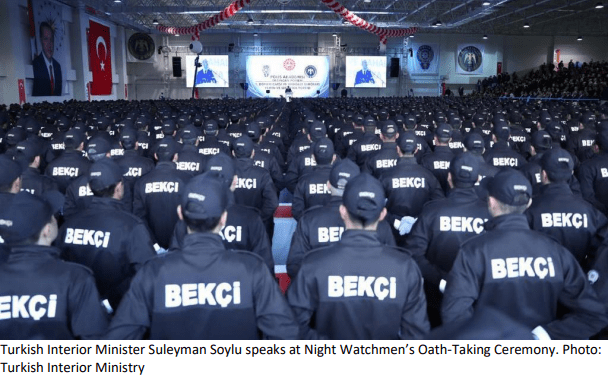
Gergerlioglu said popular support for President Erdogan and his Justice and Development Party, AKP, had declined in recent years, and the latest security-related moves were all about protecting his power and expanding his control over society. Both Erodogan and his Islamist AKP have experienced a significant drop in support, largely because of ongoing economic and political crises. A recent in poll in July, released by the Metropoll Research Company, gave Erdogan’s AKP the support of only 30.3 per cent of voters. His junior partner, the Nationalist Movement Party, got 6.2 per cent. Moreover, in last year’s local elections, the AKP was defeated in almost all of Turkey’s major cities, including Istanbul, Ankara, Izmir, Antalya and Mersin, testing the strongman’s grip on power. “President Erdogan establishes such structures to protect his rule, which is melting like an ice. We suspect that other similar security structures will be established with different names,” Gergerlioglu said. “The real reasons for establishing such structures, and the possibility of using them in case of his political defeat, worry us,” he added. Ali Tirali, a board member at the Social Democracy Foundation, SODEV, said the government is adopting such security policies in order to control the streets and effectively ban the opposition from taking to them. “We have a serious economic crisis and President Erdogan is losing support. Society is also highly polarised and strained. There might be social explosion, like the Gezi Park protests, at any moment – and the government knows this,” Tirali told BIRN. The Gezi Park protests began in 2013 with a few hundred people trying to protect one of the few green areas left in Istanbul from a plan to build a shopping mall. They grew into a nationwide challenge to Erdogan’s rule and were met by a police crackdown in which nine people died. “The government wants to be prepared for such an event and wants to control the streets,” Tirali claimed. “Having this new police force in Istanbul also makes sense, as although the city is not the country’s administrative capital, it is its political, cultural and societal centre. All societal movements start in Istanbul,” he explained. “The Interior Minister’s reasoning for having this police unit and locating it in Istanbul is nonsense,” he added. “There is an enormous pressure on people. We have not seen such a pressure in Turkish political history except in times of military coups. The pandemic also gives a perfect excuse for the government, like many other autocratic governments, such as Hungary or Brazil, to use it
in its own favour. These new security structures will increase this pressure for controlling people and streets,” Tirali said both the night-watchmen and new police units are loyal only to President Erdogan and his party. “Most of the new officers are poorly educated, unemployed and members of the lower and middles classes. They are supporters of the current ruling parties. The government gives them jobs and they in turn show unshaken loyalty to the government since they have been appointed for political reasons,” he noted.
Heavy burden on flatlining economy
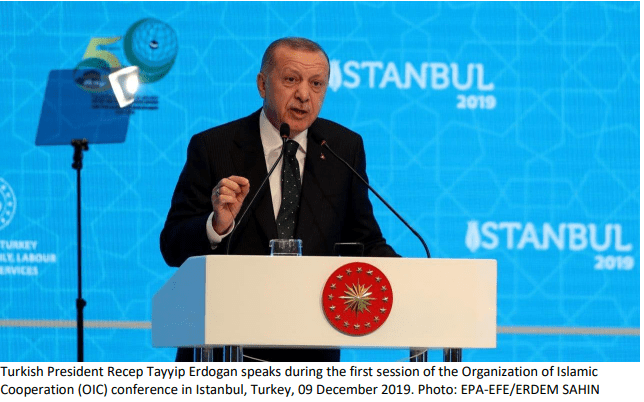
Turkish President Recep Tayyip Erdogan speaks during the first session of the Organization of Islamic Cooperation (OIC) conference in Istanbul, Turkey, 09 December 2019. Photo: EPA-EFE/ERDEM SAHIN Tirali noted that the Turkish economy has been in a growing crisis since 2018 and that neither agriculture, industry nor the service sector are creating new jobs. “Therefore, the government aims to create new jobs. Public employment has bombed in last years,” Tirali said. The economic crisis has been deepened by the effects of the coronavirus pandemic. The Turkish currency, the lira, lost more than 30 per cent of its value in 2020 alone. The inflation and unemployment rates continue to rise, causing more hardship for ordinary Turks. Officially, the unemployment rate in 12.8 per cent and the inflation rate is 10.9 per cent, but many experts suspect the real figures are even worse. The Turkish statistics agency refuses to share the details of how it calculates the rate of inflation. The rate of employment is also low; only about 29 million Turks have a job in country of 83 million people. Caner Gerek, a professor of economics at the University of Kirklareli in Thrace, said the government has boosted employment in the public sector in the economic crisis. “According to government figures, there are now 4.76 million public employees in Turkey. The number in 2014 was only 2.44 million. It is very hard to explain this huge increase with the administrative needs of the state,” he noted. “The increasing number of law enforcement officers cannot be explained either in a country where there is no serious threats of terrorism,” Gerek told BIRN. Employing so many police officers and forming new security structures may comfort Erdogan, but is worsening the balance between public income and expenditure, experts say. “In an environment where the economy does not grow, employing more public workers damages the balance of income and expenditures and does not allow the state to economise when it would be necessary,” Gerek explained. Many state institutions already overspent their annual budgets. “The government does not create realistic policies about budgets for state institutions. The government is missing targets not only for the state budget but also on economic growth, inflation and exports,” Gerek said. “We have an economy which would be naturally in recession; that is why the state is trying to revive it with public tools,” Gerek continued. Gergerlioglu agreed about the economic cost of the new security structures. “New deployments of police officers and night-watchmen will be a huge burden on our economy,” he said. “The economic situation is getting harder for people and the pandemic is deepening the ongoing crisis. However, President Erdogan has no such worries; his biggest worry is staying in power while the country is heading to the brink of the abyss,” he concluded.

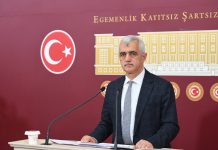
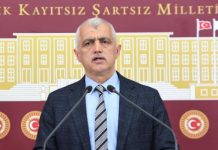
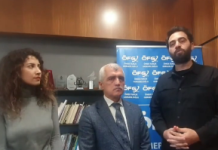



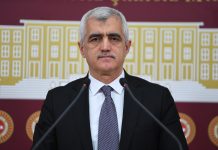
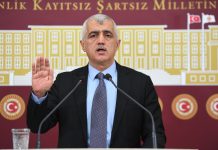
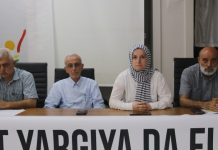

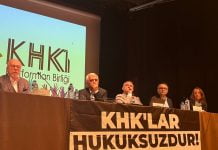
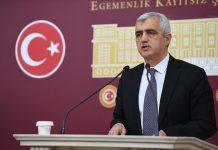
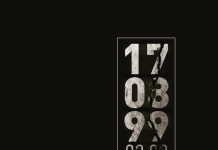
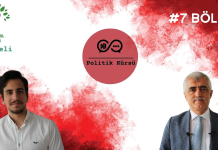

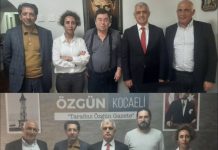

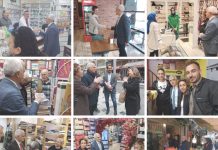
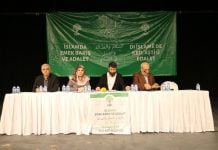
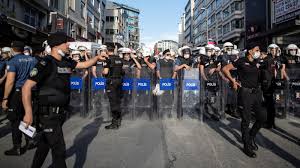





Yorumlar